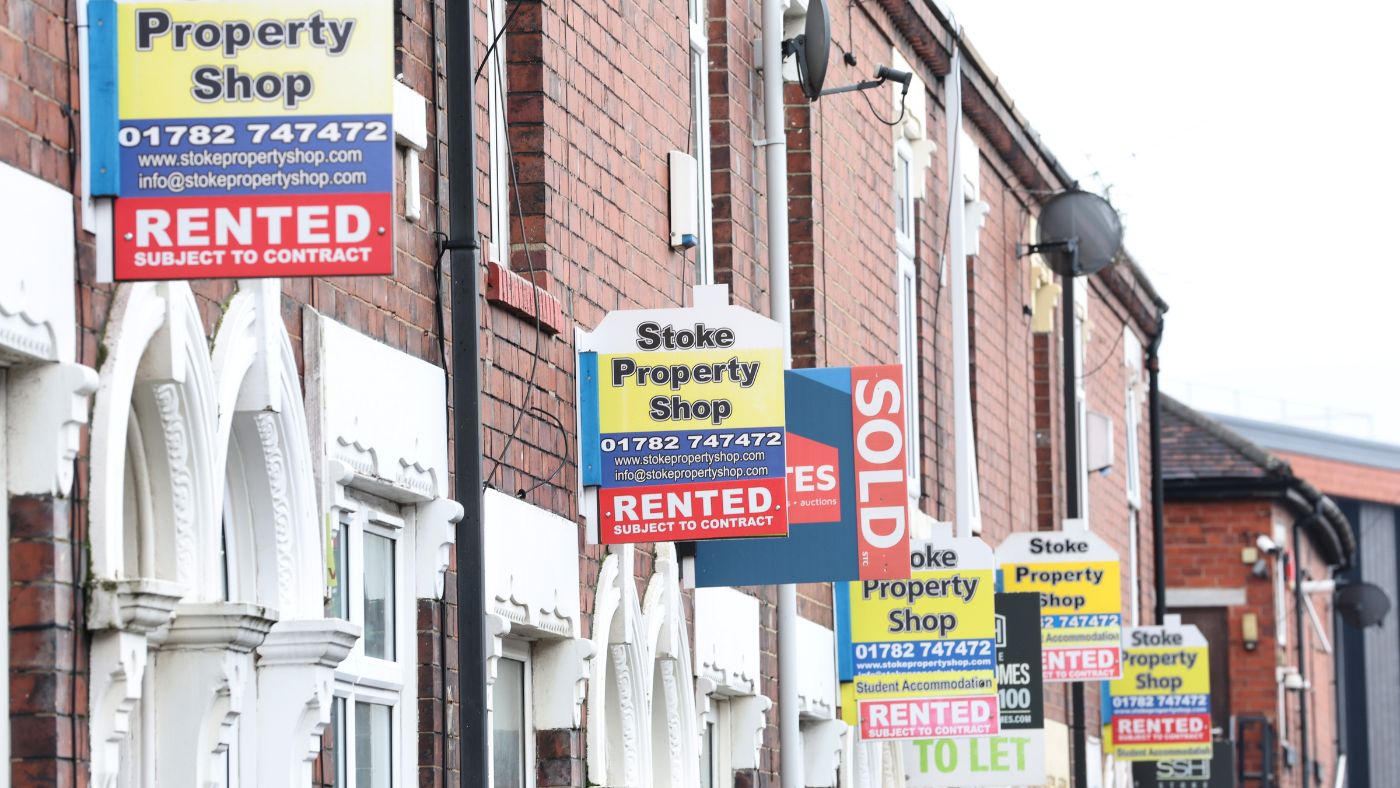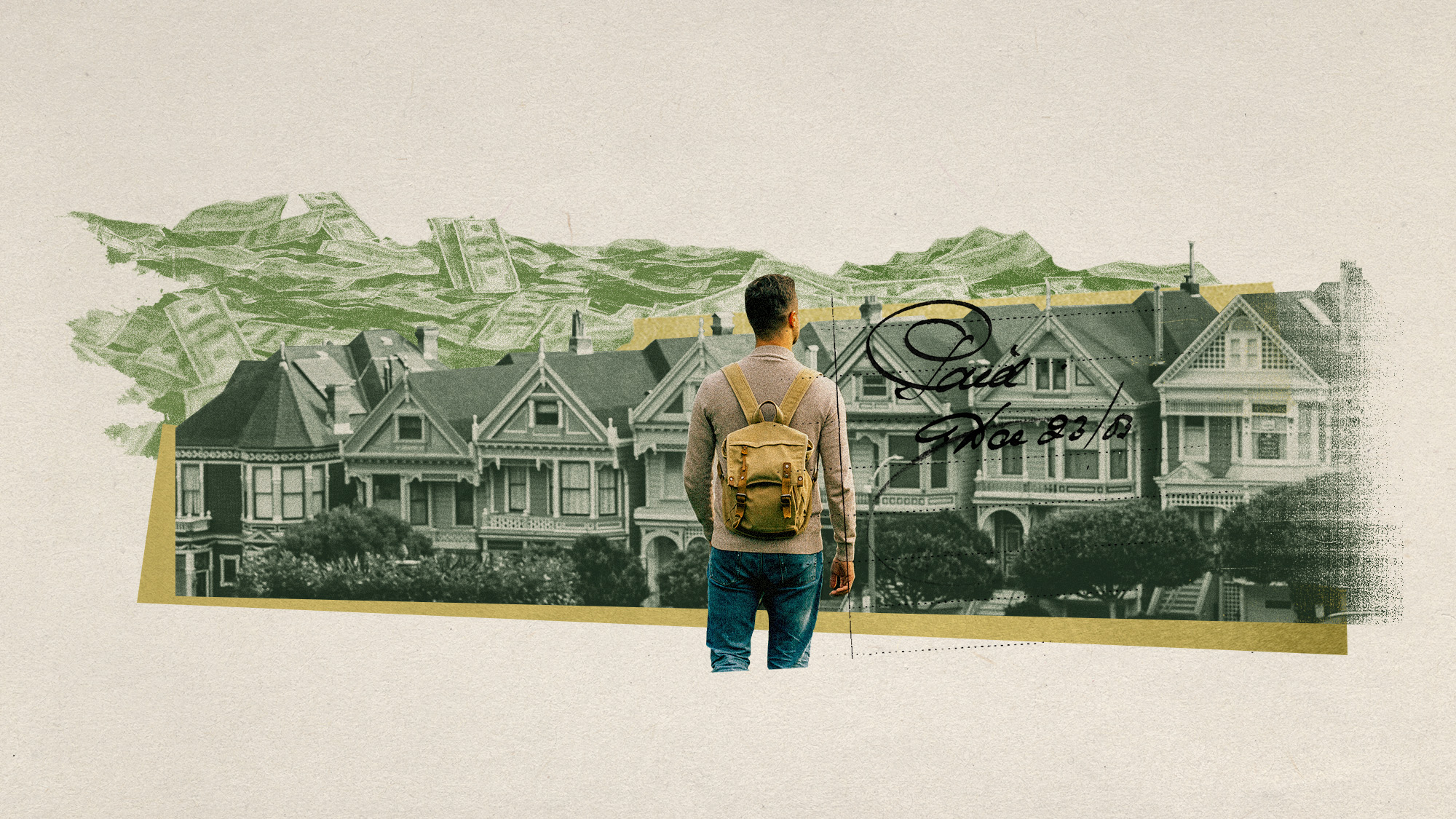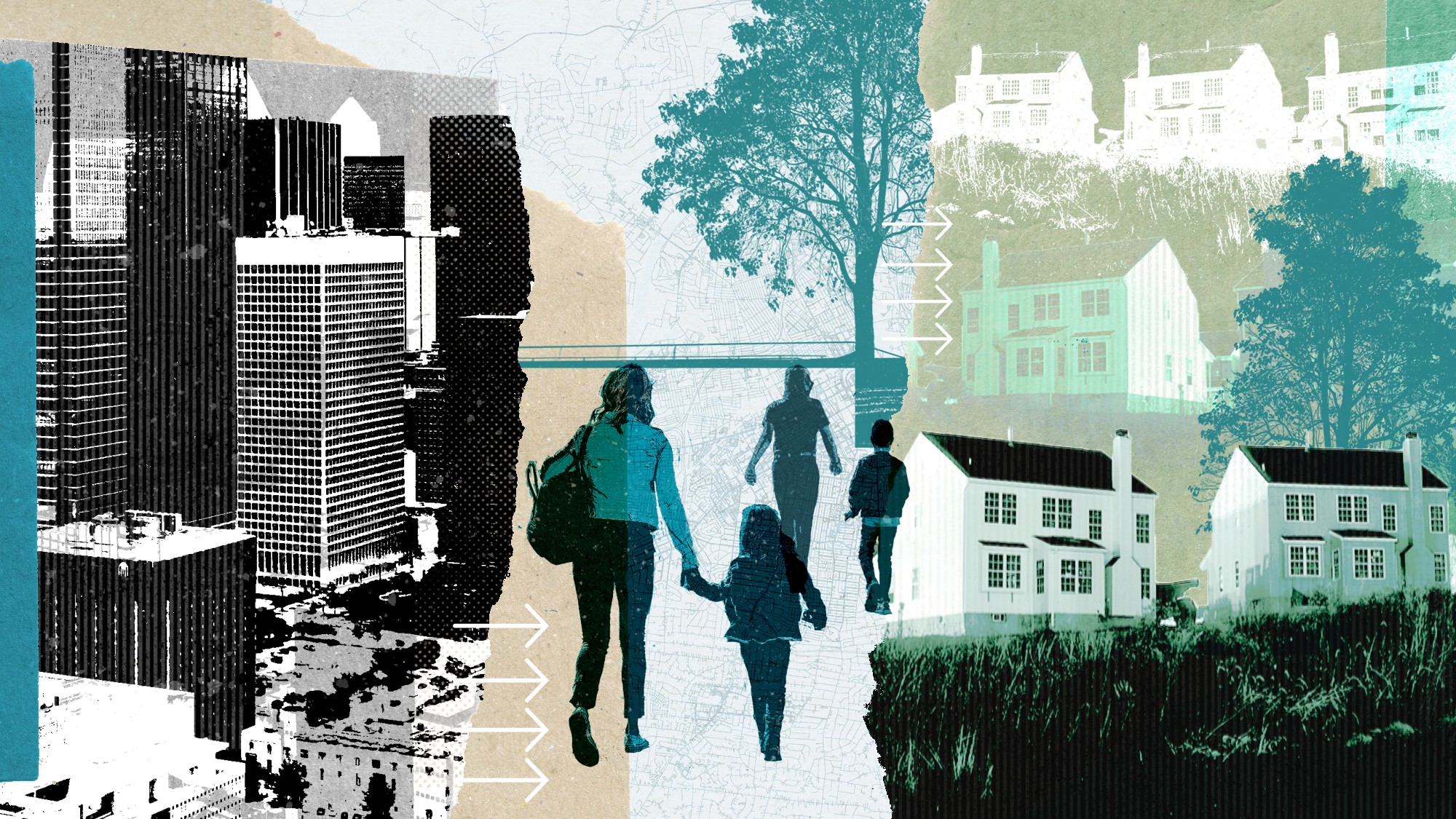The UK’s looming rental crisis
Focus on the UK’s mortgage ‘timebomb’ has left plight of private renters largely overlooked

A free daily email with the biggest news stories of the day – and the best features from TheWeek.com
You are now subscribed
Your newsletter sign-up was successful
In the latest crisis to hit UK renters, private rents have risen at their fastest since 2016, according to new data published by the Office for National Statistics (ONS).
The ONS data is the latest concern for private renters who are “being forced into bidding wars”, ITV said, as “rents spiral and demand outstrips supply”.
So intense is the competition that there are now 20 requests to view each available property across the country, according to data commissioned by the BBC.
The Week
Escape your echo chamber. Get the facts behind the news, plus analysis from multiple perspectives.

Sign up for The Week's Free Newsletters
From our morning news briefing to a weekly Good News Newsletter, get the best of The Week delivered directly to your inbox.
From our morning news briefing to a weekly Good News Newsletter, get the best of The Week delivered directly to your inbox.
These problems combined have created a huge “power imbalance” that benefits landlords and further disempowers renters, said Portia Msimang, project coordinator of Renters’ Rights London, which campaigns for more rights for tenants.
How bad is the crisis?
Following reports of large numbers of tenants pursuing a smaller number of properties to rent, BBC News commissioned Rightmove to “trawl its data and gather a picture of the growing level of competition in the private rental sector”, the broadcaster said.
What emerged was a huge increase in viewings per property over the past four years.
According to Rightmove, in May, there were 20 requests to view most properties in Britain from prospective tenants, which is up from six in 2019. Numbers are even higher in some regions, reaching 30 in the Northwest of England.
A free daily email with the biggest news stories of the day – and the best features from TheWeek.com
This “mismatch” between demand from tenants and supply from landlords “has contributed to sharp increases in rents”, said the BBC. Rental costs are also rising because landlords themselves have been “hit with rising costs,” the broadcaster added, “from repairs to significant increases in mortgage rates”.
The message that demand has outstripped supply is “not good enough”, countered Portia Msimang, citing landlords offering properties to the highest bidder. “It’s not inevitable, it’s what [landlords] choose to do, and that’s what needs to be reined in”.
How many people are affected?
The situation for renters is “already dire”, said the Financial Times (FT). Currently in the UK there are approximately 5.5 million private rental homes, where more than a third of tenants spend half their take-home pay on rent – a rate that is considered “severely rent burdened”, according to a survey of 11,000 people by Spareroom, the flat-sharing platform.
In the first three months of this year, evictions due to rent arrears reached the highest level of records going back to 2009, the FT noted, while “no-fault” evictions rose to their highest level since 2017.
According to City Monitor, taking rent together with food inflation and rising bills over the past year, “this is the latest pinch putting tenants at the heart of the housing crisis in cities”.
What is causing the crisis?
This crisis has been a long time coming, said Alex Diner, a senior researcher at the New Economics Foundation, in The Guardian.
When rent controls were abolished in the late 1980s, the then housing minister, Sir George Young, pledged that “housing benefit will take the strain”.
“And so it came to pass,” Diner said. “For many landlords, taxpayers’ cash became a business strategy… In effect, we are all subsidising the private rental sector”.
However, over time “the burden has shifted on to tenants”, he added, as rates of housing benefits have been repeatedly frozen since 2016, and people who were previously eligible for support have been increasingly excluded, meaning that now “it is both taxpayers and tenants who are taking the strain”.
Are rent controls the answer?
Some people argue that the only solution to the brewing crisis is the reintroduction of rent controls – an idea that “tends to attract popular support”, said university professors Alex Marsh and Kenneth Gibb in The Conversation. But “research shows… that rent control on its own cannot fix things,” they added. “It must go hand in hand with additional social housing and further measures to address housing affordability.”
For its part, the government has been working towards the introduction of the Renters' Reform Bill, which would bring an end to section 21 “no-fault” evictions as well as introducing a private rental ombudsman to help enforce renters’ rights and making it illegal for landlords and agents to refuse to rent properties to people who receive benefits.
However, “the government has been promising these changes since 2019”, said ITV, and so far they are yet to be passed.
The current situation “cannot be reduced just to a rental crisis”, said Investors’ Chronicle, adding that what we are witnessing is “a full-blown housing crisis”.
The “widening gap between supply and demand of houses, rising costs and wages falling behind housing costs and inflation” are having “detrimental effects on the economy”, and all the while “more of our money goes on covering up the lack of investment in housing”.
“Housing affordability is a complex problem”, agreed Alex Marsh and Kenneth Gibb. Resolving it will “demand a suitably subtle combination of policies”.
Arion McNicoll is a freelance writer at The Week Digital and was previously the UK website’s editor. He has also held senior editorial roles at CNN, The Times and The Sunday Times. Along with his writing work, he co-hosts “Today in History with The Retrospectors”, Rethink Audio’s flagship daily podcast, and is a regular panellist (and occasional stand-in host) on “The Week Unwrapped”. He is also a judge for The Publisher Podcast Awards.
-
 The ‘ravenous’ demand for Cornish minerals
The ‘ravenous’ demand for Cornish mineralsUnder the Radar Growing need for critical minerals to power tech has intensified ‘appetite’ for lithium, which could be a ‘huge boon’ for local economy
-
 Why are election experts taking Trump’s midterm threats seriously?
Why are election experts taking Trump’s midterm threats seriously?IN THE SPOTLIGHT As the president muses about polling place deployments and a centralized electoral system aimed at one-party control, lawmakers are taking this administration at its word
-
 ‘Restaurateurs have become millionaires’
‘Restaurateurs have become millionaires’Instant Opinion Opinion, comment and editorials of the day
-
 Will Trump’s 10% credit card rate limit actually help consumers?
Will Trump’s 10% credit card rate limit actually help consumers?Today's Big Question Banks say they would pull back on credit
-
 Why is pizza in decline?
Why is pizza in decline?In the Spotlight The humble pie is getting humbler
-
 Is $140,000 the real poverty line?
Is $140,000 the real poverty line?Feature Financial hardship is wearing Americans down, and the break-even point for many families keeps rising
-
 Fast food is no longer affordable for low-income Americans
Fast food is no longer affordable for low-income AmericansThe explainer Cheap meals are getting farther out of reach
-
 Why has America’s economy gone K-shaped?
Why has America’s economy gone K-shaped?Today's Big Question The rich are doing well. Everybody else is scrimping.
-
 AI is creating a luxury housing renaissance in San Francisco
AI is creating a luxury housing renaissance in San FranciscoUnder the Radar Luxury homes in the city can range from $7 million to above $20 million
-
 Exurbs: America's biggest housing trend you haven't heard of
Exurbs: America's biggest housing trend you haven't heard ofUnder the Radar Northeastern exurbs were the nation's biggest housing markets in 2024
-
 Penny-pinching: Elon Musk looks at the cent to cut costs
Penny-pinching: Elon Musk looks at the cent to cut costsIn the Spotlight Musk's DOGE claims that millions can be saved if production on pennies is slashed